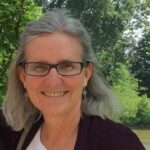By Bhanu Joy Harrison
Editor’s Note: We offer slices of Bhanu’s article, available now in our Subscriber’s area and in our Subscribers’ mailboxes mid December. January 1, 2020 all new articles will be open source on our main web page.
It’s already starting. Holiday decorations are showing up at the stores, music is playing at the mall, pumpkin lattes abound. The cultural and familial buildup to this season is magnified every year and, for many people, becomes totally overwhelming.
The experience of “too much” can replicate traumatic overwhelm in our nervous system, creating a whole season of nervous system dysregulation. This dysregulation then creates heightened emotions and reactivity (“What!? They didn’t make a vegan pumpkin pie??!”), depression and anxiety (“They don’t like my gift or I have to get the perfect gift”) and often a desire to literally escape the season’s events (fleeing by not going to the party) or a desire to dissociate (fleeing by leaving your body – I’ll just be on my phone for the whole dinner).
How can we assist our clients and ourselves in navigating this extended stressful season? Here are a few areas to consider: Identify Holiday Childhood Trauma Histories and Beliefs, Know Your Triggers and Your Resources, Develop a Resource List, Practice Boundary Setting.
Bhanu shares tools to work with each of these areas. We’re sharing her “Somatic Boundary Setting Practice” for our website readers.
If you are teaching this to a client, do this in session first, so you can support your client in noticing their reactions. It is a very powerful exercise! Have your clients begin saying “no” to smaller events to build some courage around this practice. In front of a mirror, practice saying “no” in all the different ways you can imagine. Shaking your head, saying “no” loudly,
softly, firmly, tentatively. With each “no” you utter, take an actual minute of time to notice what happens in your body.
Does it feel scary, or like something bad will happen? Does it feel energizing, overwhelming, empowering? What is your body posture like? Erect and strong, or collapsed? Try this sitting and standing up. Take a few breaths.
Now do this same exercise saying “yes” in all the ways you can imagine. Nodding, saying “uh uh”, uttering a loud, enthusiastic YES, a tentative yes, a begrudging yes. Again, take some breaths and see how these ‘yes-es’ feel in your body. Does it feel authentic, or people pleasing, obliging or joyful?
Remember . . . if you can’t say ‘no’ authentically, your ‘yes’ doesn’t mean very much.
Photo credits:
Pumpkin Latte: Jill Wellington from Pixabay
Yes and No: Gerd Altman from Pixabay
Holiday gift box: Rawpixel from Pixabay
 Bhanu Joy Harrison, LCSW, SEP, is a UCLA- Trained Mindfulness
Bhanu Joy Harrison, LCSW, SEP, is a UCLA- Trained Mindfulness
Facilitator and Affiliate MAPs Teacher, UCLA Semel Institute, Mindful
Awareness Research Center (MARC). She is also a Certified Mindfulness
Teacher through the International Mindfulness Teachers Association (#P-0020) a certified Somatic Experiencing Practitioner and EMDR practitioner.
Bhanu offers classes and workshops on mindfulness meditation, including UCLA’s well researched “Mindful Awareness Practices for Daily Living I” (MAPs I). In addition, she designs workshops and classes on mindful
living, ethics and body awareness tools for bodyworkers, social workers and counselors. She is a licensed Clinical Social Worker in private practice in Albuquerque, New Mexico focusing on body centered and mindful approaches to trauma resolution and self regulation.
She lived a contemplative life for eight years in the 1970’s at Kripalu
Ashram, now the Kripalu Center for Holistic Health which, along with her
family’s alternative interests, influenced the direction of her life towards
awareness and mindful living. Over the years, she has continued to
practice mindfulness and participated in many personal and professional
growth retreats.
Bhanu is available for presentations and workshops and can be reached
through her website at: www.choosingmindfulness.net









